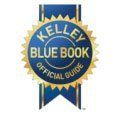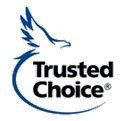Seasonal Home Maintenance Tips to Lower Your Insurance Risk
Seasonal Home Maintenance Tips to Lower Your Insurance Risk
Your home is one of your most significant investments and protecting it is a top priority. While homeowners' insurance provides a crucial safety net for unexpected disasters, proactive maintenance is your first line of defense. By taking care of your property throughout the year, you can significantly reduce the risk of common issues that lead to expensive and stressful insurance claims.
Key Life Milestones to Consider Life Insurance
Spring: A Time for Renewal and Repair
As the winter thaw gives way to spring, it's the perfect time to assess your home for any damage caused by cold weather and prepare it for the warmer months ahead.
- Inspect Your Roof and Gutters
Winter ice, snow, and wind can take a toll on your roof. Once the weather is clear, conduct a visual inspection from the ground. Look for missing, cracked, or curling shingles. Any signs of damage could create an entry point for water, leading to leaks and significant interior damage.
Clean your gutters and downspouts of leaves, twigs, and other debris that accumulated over the winter. Clogged gutters can cause rainwater to overflow and seep into your roof or foundation, resulting in costly water damage claims. Ensure downspouts direct water at least six feet away from your home's foundation.
- Check Windows, Doors, and Siding
Inspect the seals around your windows and doors. Damaged or worn-out caulking and weatherstripping can allow water to penetrate your walls. Resealing these gaps is a simple, low-cost task that prevents moisture problems and improves your home's energy efficiency. Also, check your siding for cracks, holes, or warping that could let in water or pests.
- Service Your HVAC System
Your air conditioning system is about to start its busy season. Schedule a professional tune-up to ensure it's running efficiently and safely. A technician can clean the coils, check refrigerant levels, and inspect electrical components. This maintenance helps prevent system breakdowns during summer heatwaves and can identify potential fire hazards from faulty wiring.
Summer: Focus on the Outdoors and Fire Safety
Summer brings warm weather perfect for outdoor projects. This is the ideal season to focus on landscaping and external systems to prevent property damage and enhance safety.
- Manage Trees and Landscaping
Inspect the trees on your property, especially those close to your house or power lines. Look for dead branches, signs of disease, or rot. High winds during summer storms can cause weak limbs to fall, damaging your roof, siding, or even a neighbor's property. Pruning overgrown trees and shrubs not only improves curb appeal but also mitigates a common cause of property damage claims.
- Clean Your Deck, Patio, and Dryer Vent
Inspect your deck or patio for loose boards, popped nails, or signs of rot. Making these repairs helps prevent injuries, which can lead to liability claims. A thorough cleaning and a fresh coat of sealant can protect the wood from sun and rain, extending its lifespan.
Lint buildup in your dryer vent is a serious fire hazard. At least once a year, disconnect the vent from the back of the dryer and clean out all the accumulated lint from the pipe and the exterior opening. A clean vent allows your dryer to run more efficiently and significantly reduces fire risk.
Fall: Prepare for the Coming Cold
As temperatures begin to drop, your focus should shift to preparing your home for the harsh conditions of winter. These tasks are essential for preventing frozen pipes and water damage.
- Protect Your Pipes and Exterior Faucets
One of the most common and damaging winter claims is from burst pipes. Before the first freeze, disconnect and drain all garden hoses. Turn off the water supply to your exterior faucets and drain them completely. Inside, identify and insulate any pipes located in unheated areas like basements, crawl spaces, or attics.
- Clean the Gutters (Again)
Yes, it’s time to clean them again. Falling leaves can quickly clog your gutters, and if left unattended, they can lead to ice dams in the winter. An ice dam is a ridge of ice that forms at the edge of a roof, preventing melting snow from draining. The backed-up water can then leak into your home, causing major damage to walls, ceilings, and insulation.
- Inspect Your Furnace and Chimney
Just as you serviced your AC in the spring, now is the time to have your furnace inspected by a professional. A clean and efficient heating system is less likely to fail during the coldest days of winter. If you have a fireplace, schedule a chimney sweep to remove flammable creosote buildup, a leading cause of house fires.
Winter: Monitor and Maintain for Safety
Winter maintenance is all about managing snow and ice to prevent damage and ensure your home remains safe and secure.
- Prevent Ice Dams
Even with clean gutters, ice dams can still form. Keep an eye on your roof after heavy snowfall. If you notice thick ridges of ice forming along the eaves, you may have an insulation or ventilation problem in your attic. Using a roof rake to carefully remove snow from the edge of your roof can help prevent dams from forming.
- Keep Walkways and Driveways Clear
Snow and ice on your walkways and driveway create a serious slip-and-fall hazard. A visitor injuring themselves on your property could result in a personal liability claim against your homeowners insurance. Keep these areas clear of ice and snow, and use sand or salt to improve traction.
- Check for Interior Leaks
During thaws, do a quick check in your attic and on ceilings for any signs of water stains or drips. Catching a small leak early can save you from a major water damage repair later. Also, be mindful of any unusual dips in water pressure, as this could indicate a frozen or leaking pipe somewhere in your system.
Protect Your Home - Contact Us to Request a Homeowners Insurance Quote!
Regular maintenance is your best tool for risk prevention, but even the most diligent homeowner can't prevent every accident. That's why having the right insurance coverage is so important. Use this seasonal guide as a prompt to review your current homeowner's insurance policy. Ensure your coverage limits are adequate to rebuild your home and replace your belongings in a worst-case scenario. Pay attention to your deductibles and understand what is and isn't covered.
If you've made significant upgrades to your home, contact your insurance agent to adjust your policy accordingly. As your local home insurance partner, Champoux Insurance is dedicated to securing your loved ones' financial well-being. It's the right time to act, whether you are exploring home insurance for the first time or reviewing your existing policy. Our experienced insurance agents proudly serve homeowners across the communities of Lewiston, Auburn, Turner, Monmouth, ME, and the surrounding areas.
Protecting what matters most is just a conversation away. Request a quote online or contact us at (855) 219-4011 to schedule your consultation.
















